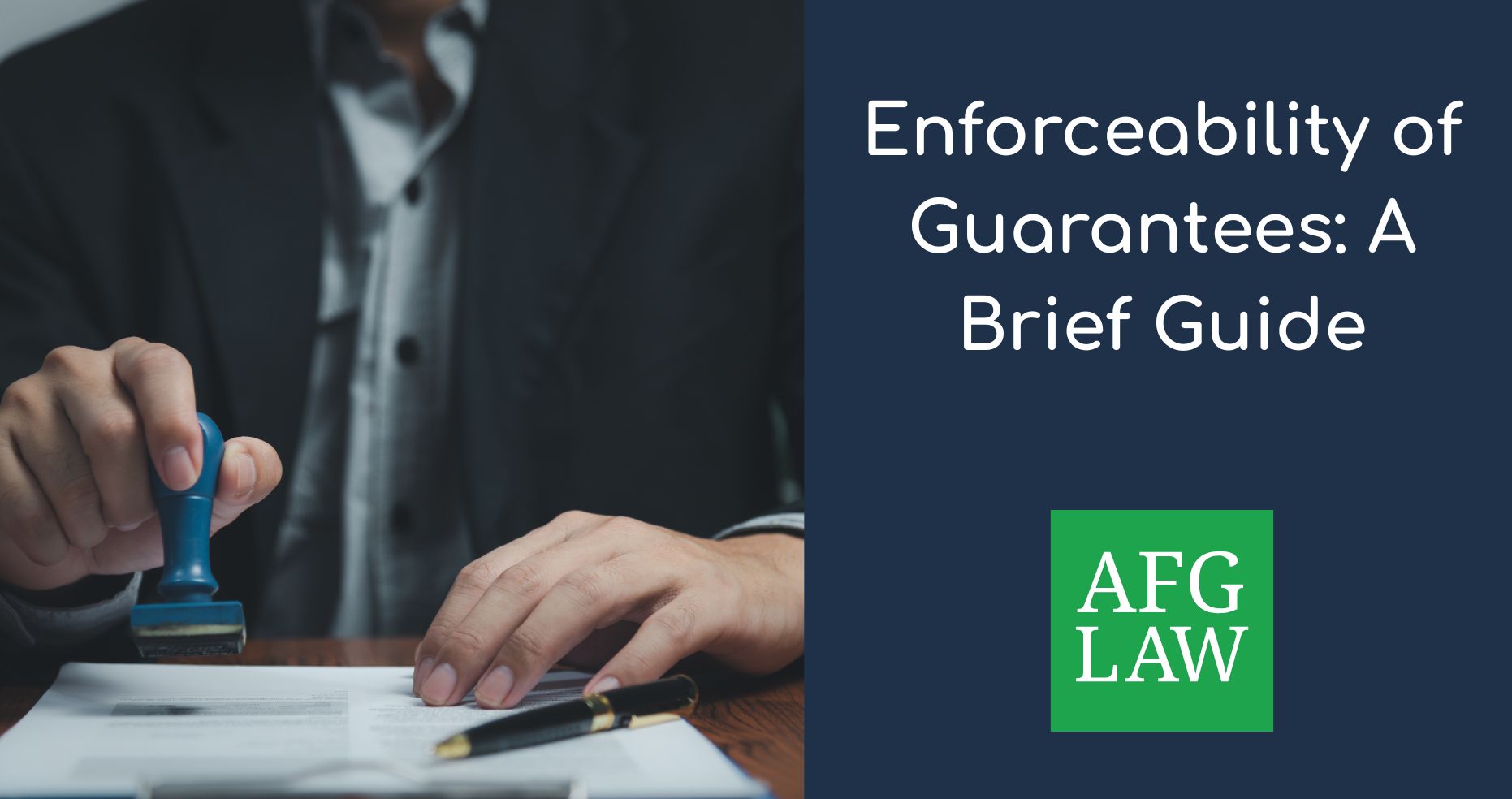What is a Winding Up Petition?
A winding up petition is a legal action by the Court which essentially compels a company to cease operations and liquidate its assets in order to pay off its creditors. Creditors typically initiate and issue petitions when they have previously tried and failed other methods to recover the debt owed to them, such as ignored statutory demands.
Winding up petitions are often seen as the nuclear option in commercial debt recovery as the consequences for the recipient business can be catastrophic, both reputationally and financially. When responding to a winding up petition time is very much of the essence.
An unchallenged winding up order will result in the recipient company being placed into compulsory liquidation and eventually dissolved. Given the potential consequences, all companies should have a procedure in place for dealing with winding up petitions.
Our team of commercial dispute resolution specialists at AFG Law have ample experience in assisting both creditors and debtors with challenges surrounding winding up petitions. If you would like more information on our services and how we may be able to help regarding winding up petitions, please do not hesitate to get in touch with our team today.
Who Can Issue a Winding Up Petition?
A winding up petition can be issued by certain parties who have a legal interest in the financial stability of a company. The most common petitioner is a creditor, but other parties can also apply under specific circumstances. These may include:
Creditors (the most common)
A creditor that is owed £750 or more can issue a winding up petition if the company has failed to pay its debts.
The creditor must prove that the company is unable to pay its debts, often by showing that they have attempted to recover the debt previously. For example, they issued a statutory demand that was not satisfied within 21 days. A creditor may also prove company debts by obtaining evidence that the company is balance sheet insolvent (where liabilities exceed assets).
The Company Itself (Directors or Shareholders)
A company can apply for its own winding up if it is insolvent and unable to continue trading. This is typically done when Directors believe there is no viable way to rescue the business.
The Secretary of State for Business and Trade
The government can also issue a winding up petition against a company if it is operating against the public interest, such as if they are found to be undertaking fraudulent or unlawful activity.
What is the Winding Up Process?
The winding up process begins with submitting a petition to the Court. The petition must demonstrate that the company in question is unable to pay its debts. Once the creditor has applied to the Court, a hearing date is typically set for a judge to determine if the winding up of the company is justified.
Before the hearing, the petition must be served on the company and advertised in the London Gazette. This alerts other creditors, who may choose to support or oppose the petition.
If a company doesn’t respond to the petition or can’t successfully argue against it, the Court issues the winding up order. This basically means the company is being forced to close down. When that happens, someone called the Official Receiver steps in as the liquidator. They take control of the company’s assets and affairs and ensures any residual funds are used to pay out to creditors.
The company’s bank accounts are usually frozen, and the directors no longer have any control. The liquidator’s job is to work out what’s happening with the company’s finances, sell off any remaining assets the company owns, and then use that money to pay back the people the company owes to creditors. Eventually, the company is dissolved and removed from the Companies House register, marking the end of its legal existence.
How to Stop a Winding Up Petition
If you are the recipient of a winding up order and the sum within the petition is correct and due with no disputes, you should aim to pay it immediately. You will usually be required to pay the petition and creditors’ costs. Once the creditor receives the full payment, make sure they acknowledge it right away in writing. Then, you can immediately apply to the Court to withdraw the petition.
If you can’t pay the petition right away, try to work out a payment plan with the creditor who filed it. Ideally, you want to convince them to withdraw the winding up petition altogether – this stops other creditors from supporting it. If they won’t withdraw it, you can appeal to them to agree not to advertise it in the Gazette, as long as you stick to the repayment plan. The faster you can pay off the debt, the less likely it is that the petition will become public knowledge.
If you genuinely dispute the sum claimed in the winding up petition, you need to provide the petitioning creditor with details of the dispute as soon as possible. Having set out the details of the dispute, you should invite the petitioning creditor to voluntarily withdraw the petition on the basis that the sum claimed is disputed.
If you do not get a satisfactory response you will need to file an urgent application (before the date the petition can be advertised) for an injunction to restrain the advertisement of the petition. At the same time, you should seek an order for the dismissal of the petition on the grounds it has been issued with respect to a genuinely disputed debt and is an abuse of process.
Never ignore a winding up petition in the hope that it will simply go away. The sooner you act, the more likely it is that you will be able to protect your business from serious reputational and financial harm. Similarly, as soon as winding up proceedings are mentioned, our experience is that dealing with the issue head on is the sensible, and often most cost efficient, response.
How can AFG Law Assist with any Winding Up Petition?
Whether you are a creditor seeking payment of unpaid debts owed to you, or a Director of a company served with a winding up petition, AFG Law can assist and advise you.
Our debt recovery solicitors can guide creditors through the process of issuing a statutory demand or a winding up order.
If you are a company served with a petition, our specialist team of dispute resolution solicitors can offer guidance and advice on challenging the petition.
To discuss any debt recovery matters, please get in touch with a member of our team on 01204377600. Alternatively, you can send an email with your name, contact information, and brief details about the nature of your issue to disputeresolution@afglaw.co.uk, and one of our team members will be able to help you.







